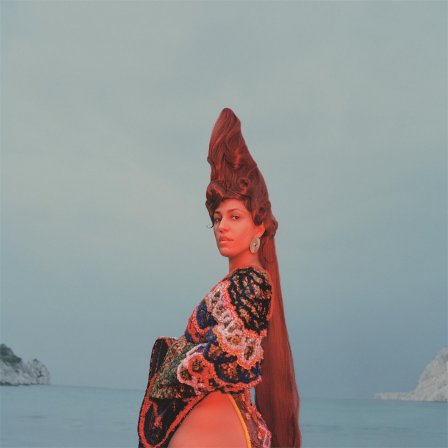Last year, the experimental pop musician Lafawndah posted a series of pictures to Instagram of iconic women artists with the caption “MOTHER.” As an exercise in mood-boarding, it was unimpeachable, a lineup of avant-queens, perfectly calibrated to make a certain subset of artsy, clubby people go “yassss.” But the photos themselves also spoke to her sense of origin and ambition, encompassing foremothers of Persian folk (Sima Bina), first ladies of hip-hop (Lauryn Hill), legendary composers (Meredith Monk, Midori Takada), and filmmakers both in front and behind the camera (Forough Farrokhzad, Gena Rowlands, Lucrecia Martel).
It’s obnoxious to perform augury on someone’s social media (apologies queen), but a hallmark (and a hindrance) of Lafawndah’s music has always been her considerable style and intellect. Among the acts that emerged in the early 2010s that warped regional club sounds into borderless post-global pop, Lafawndah emerged as a star in waiting. Her potential was obvious in an early performance as “Yasmine” on the reboot of Glenn O’Brien’s TV Party. Feeling herself in a deconstructed top with a bleach side-ponytail, she collapsed the distance between electroclash and the radical club missives of Nguzunguzu and Total Freedom with sexiness, grace, and humor.
But what has become clear over the course of her career is that the idiom of pummeling club music she first pursued on earlier releases is somewhat incompatible with her wider ambitions as an artist. The libidinal charge that snakes through her work can fizzle out, as new ideas bubble to the fore. It’s a problem that friend and Warp label mate Kelela has largely avoided in her own “intellectual sexual” work through sheer emotional precision, what Björk would call finding the “mutual coordinates” between one’s self and a deeper human truth.
With her debut album, Ancestor Boy, Lafawndah locates herself beautifully, with a musical vocabulary that sounds closer to Lizzi Bougatsos (Gang Gang Dance) than M.I.A. and closer to Fairuz than either of them. On tracks like “Daddy,” she nails the drama and sensuality of R&B as she sings pleadingly across generations — it is the most engaging song about intergenerational trauma that I’ve ever heard. Ditto “Parallel,” a woozy pop ballad made expansive with droning oud. Elsewhere, the influence of her collaboration with “MOTHER” Midori Takada on Le Renard Bleu is on full display at the beginning of “Tourist” before the drums fade out and the song explodes into digital dancehall-dabke-pop.
“Substancia” is a return to the more club-heavy Lafawndah of old and is a showcase for her formidable production. As she snaps into the chorus, her voice ascends into a squall of processing, elevating the song’s fierce, all-consuming passion. But the track is more interesting as a dispatch from an auteur than a songwriter — the lyrics throughout the record leave something to be desired. The sample of tango piano that grounds “Substancia” is as key to its mood as the use of filters. Same goes with its music video, which features a riff on an iconic Faye Dunaway commercial and an homage to the “ramen western” Tampopo, as Lafawndah and the dominatrix/intellectual Reba Maybury pass an egg yolk between each other’s lips.
The most interesting directional shift Lafawndah has taken is her pivot to the theatrical. The ghosts of Arab and Persian divas haunt the record, as Lafawndah leans into the drama and power of her voice in moments that would make a less committed, more conventionally Western singer blush. Throughout, she evokes the memory of singers like Umm Kulthum, whose lush, dense songs weren’t bound by the severity of English pop song structure but hovered for upwards of a half hour before swooping and climaxing into rapture.
Lafawndah achieved a similar feat with Midori Takada on Le Renard Bleu, serving as an interesting contrast to her solo debut. Ancestor Boy is a fascinating album, a showcase for Lafawndah’s vast ambition and considerable wells of talent, but it also reveals the challenge she has set for herself if she continues on the path of a pop star. Marrying the weight of her subject matter and boundless ideas into such a light and airy form can sometimes yield lopsided results. But given enough space, Lafawndah can truly soar.

